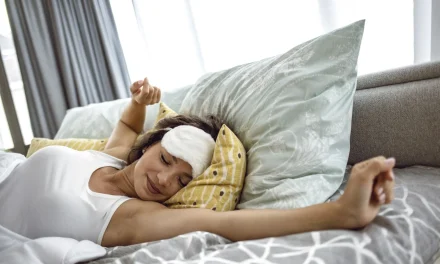In this article:
Explore the healing power of social bonds, and why being social is key for your health and longevity
Did you know that exchanging a few words with your neighbors can have a powerful impact on extending your life? Scientific research has shown that socializing plays a significant role in promoting longevity and overall health. In fact, studies have revealed that the simple act of engaging in social interactions can have a positive effect on our hormones, ultimately benefiting our well-being.
A recent study conducted over the past decade compared two groups of people. Both groups lived alone, but there was a crucial difference: the first group maintained strong interactions with their neighbors, while the second group did not. The findings revealed that participants who lived alone but had robust connections with their neighborhoods experienced a 54.7% reduction in the risk of death compared to their peers who reported low interactions with neighbors. Surprisingly, living alone itself did not significantly increase the risk of death. Instead, it was those who lived alone and failed to engage with their neighbors who faced a much higher risk of premature mortality compared to those who lived with others.
This study underscores the importance of social connections for our well-being and longevity.
Loneliness and weak social ties have been associated with health risks comparable to smoking 15 cigarettes a day!
So, fostering meaningful interactions with our neighbors can have a profound impact on our overall health and quality of life.
Let’s explore the fascinating connection between socializing and our bodies.
Hormonal influence
Socializing has been found to have a direct impact on our hormonal balance. When we engage in conversations and interactions with others, our brains release oxytocin, also known as the “love hormone.” This hormone not only enhances our feelings of trust and connection but also has a range of physiological benefits. It helps regulate stress levels, strengthens the immune system, and promotes cardiovascular health.
Stress reduction
One of the key benefits of socializing is its ability to reduce stress. By engaging in meaningful conversations and building connections with others, we activate our parasympathetic nervous system, which counteracts the effects of stress. This, in turn, helps to lower blood pressure, reduce inflammation, and improve overall mental well-being. So, the next time you feel stressed, consider reaching out to a friend or neighbor for a chat.
Mental stimulation
Socializing provides us with mental stimulation, which is crucial for brain health. When we engage in conversations, we challenge our cognitive abilities, improve memory, and enhance problem-solving skills. Additionally, social interactions contribute to a sense of purpose and belonging, which are vital for maintaining mental and emotional well-being.
Enhancing emotional resilience
Building strong social connections helps us develop emotional resilience. When we have a support system of friends, family, and neighbors, we can lean on them during challenging times, which helps us navigate through adversity more effectively. Social support has been shown to reduce the risk of developing mental health disorders and improve overall emotional well-being. Social support also gives us a reason to live! If we’re not alone, there’s still a chance to be useful. When we wake up in the morning with a sense of purpose, it keeps us vibrant and alive. Nothing rejuvenates us more than relentlessly pursuing that purpose.
Is there a best moment in the day to socialize?
Not really. Any time is the best time
- In the morning, when your cortisol levels are at their peak and you’re setting the mood for the rest of the day, take the time to give a warm hug to your children and spouse. Keep the door open for your neighbor, and try to sow the seeds for a better world. Remember, what you reap is what you’ve sown.
- Anytime during the day, The parasympathetic system and the vagus nerve are activated when there is no perceived menace in the environment around you. When your vagus nerve is activated, you enter full recovery mode: refueling your immune system, healing inflammation, and supporting your gut and digestion. Make an effort to create a positive atmosphere around you, because in a negative atmosphere, your health is bound to suffer.
- After a strenuous workout,when your heartbeat has been elevated for an extended period or you’ve been lifting weights for more than 45 to 60 minutes, your sympathetic system—the system that activates in a stressful environment—blocks out the vagus nerve. Instead of supporting your internal organs, it fuels your muscles, suppressing your immune system and digestive processes. To kickstart the recovery process promptly, prioritize positive social Interactions. While breathing exercises and meditation techniques are effective, don’t underestimate the power of a brief chat, a few smiles, or even better, laughter. No supplements are more potent than positive social interactions in calming you down and initiating the healing process.
- Before bedtime, it’s essential to ensure that your vagus nerve and parasympathetic system are at their most active. This sets the stage for a restful, fully recovering, and healing night. There’s nothing better than drifting off to sleep, knowing that you can count on your friends and family, and they can count on you. As social animals, we find true comfort when we find true meaning in our leavesm, and this happens only when we feel that we are building something on a social level.
Social connections play a crucial role in promoting well-being and longevity, especially among seniors.
We’re social creatures, just like Aristotle said. When we’re kind and contribute to our community, we’re not only following our instincts but also enriching our own lives. These interactions are vital for our well-being. By recognizing our social nature, we see how our own happiness is tied to the health of our world. It’s a beautiful synergy where goodwill comes back to us, making us happier and healthier.
In this article, you learned how the social environment can impact your health. For more tips on maintaining health and youthfulness at any age, explore our comprehensive article:
The 10 most efficient, scientifically proven habits to stay young and fit at any age
References:
-
Tamminen, N., Kettunen, T., Martelin, T. et al. Living alone and positive mental health: a systematic review. Syst Rev 8, 134 (2019). https://doi.org/10.1186/s13643-019-1057-x
-
Ebert A, Brüne M. Oxytocin and Social Cognition. Curr Top Behav Neurosci. 2018;35:375-388. doi: 10.1007/7854_2017_21. PMID: 29019100.
-
Knezevic E, Nenic K, Milanovic V, Knezevic NN. The Role of Cortisol in Chronic Stress, Neurodegenerative Diseases, and Psychological Disorders. Cells. 2023; 12(23):2726. https://doi.org/10.3390/cells12232726
-
Neuser, M.P., Teckentrup, V., Kühnel, A. et al. Vagus nerve stimulation boosts the drive to work for rewards. Nat Commun 11, 3555 (2020). https://doi.org/10.1038/s41467-020-17344-9
-
Capilupi MJ, Kerath SM, Becker LB. Vagus Nerve Stimulation and the Cardiovascular System. Cold Spring Harb Perspect Med. 2020 Feb 3;10(2):a034173. doi: 10.1101/cshperspect.a034173. PMID: 31109966; PMCID: PMC6996447.
-
Scott A, Kenneth S. G., Davis Glen M. Cardiac Autonomic Responses during Exercise and Post-exercise Recovery Using Heart Rate Variability and Systolic Time Intervals—A Review. Frontiers in Physiology. 2017; URL=https://www.frontiersin.org/journals/physiology/articles/10.3389/fphys.2017.00301. DOI=10.3389/fphys.2017.00301
-
Brandenberger, G., Viola, A.U. (2006). Autonomic Nervous System Activity during Sleep in Humans. In: Cardinali, D.P., Pandi-Perumal, S.R. (eds) Neuroendocrine Correlates of Sleep/Wakefulness. Springer, Boston, MA. https://doi.org/10.1007/0-387-23692-9_24
Disclaimer
Consult a health professional before making significant changes to your diet, exercise routine, or supplement regimen. The information provided in this blog is intended to convey the latest scientific research in an accessible manner. However, it does not replace the advice of a medical professional. Take your health conditions into account and consult a qualified healthcare provider to ensure that the decisions you make are safe and appropriate for your specific health needs. Ultimately, you are responsible for your own health and well-being.






